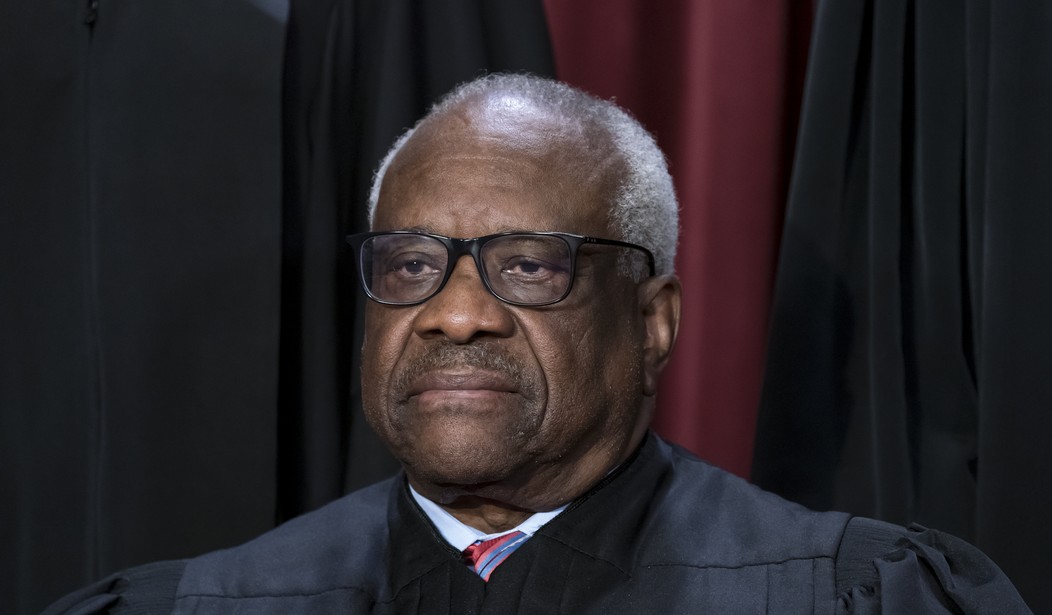My colleague Ward Clark wrote earlier Thursday about the tough questioning the Supreme Court Justices gave to lawyers arguing that former President Donald Trump should be kept off the ballot in Colorado because they say he violated the 14th Amendment by participating or inciting an “insurrection” on Jan. 6, 2021.
Trump has not been charged with or convicted of insurrection.
Surprisingly, even liberal Justices Sonia Sotomayor and Ketanji Brown Jackson appeared doubtful about the merits of Colorado’s case:
Trump 14th Amendment Case at Supreme Court: Justices Signal Skepticism Over Colorado Ruling
Later in the day, conservative justices also weighed in, and their questions appeared to indicate that they would side with the former president in this case. Of course, court watchers have been fooled before, but the justices sounded awfully dubious.
Brett Kavanaugh got straight to the point, asking, how is this democratic?
“Your position has the effect of disenfranchising voters to a significant degree,” conservative Justice Brett Kavanaugh said in one of the more striking exchanges with attorneys. “What about the background principle, if you agree, of democracy?”
Justice Clarence Thomas, meanwhile, had Colorado attorney Jason Murray on the ropes as he asked him for examples of removing presidential candidates from ballots for violating the 14th Amendment. Murray was left hemming and hawing.
Justice Thomas is ON FIRE.
— Graham Allen (@GrahamAllen_1) February 8, 2024
He took down Colorado attorney Jason Murray BASELESS CLAIMS during Donald Trump's 14th Amendment hearing at SCOTUS.
Thomas - "What are the examples?"
Murray - Provides no examples.
Thomas - "Do you have any examples of this?"
pic.twitter.com/4xZDmu0CBR
Chief Justice John Roberts pointed out the obvious dangers of going down this road:
The court’s ruling will have implications for other states where challenges to Trump’s eligibly are pending. But the fallout from a ruling against Trump, Roberts said, could be even wider. If Trump is removed from the ballot in Colorado, Roberts predicted that states would eventually attempt to knock other candidates out of future elections. That, he said, would seem inconsistent with the purpose and history of the 14th Amendment. [Emphasis mine.]
“It’ll come down to just a handful of states that are going to decide the presidential election,” Roberts said. “That’s a pretty daunting consequence.”
Chief Justice John Roberts: Insurrection is a broad term
— The Post Millennial (@TPostMillennial) February 8, 2024
pic.twitter.com/Cl0qgItUTk
Notably, the Justices didn't seem all that interested in discussing Jan. 6:
The nine justices spent little time on the former president’s actions surrounding the January 6 attack that sparked the ballot challenge in Colorado and elsewhere.
There were more questions, in fact, about the Civil War and how the insurrectionist ban in the 14th Amendment of the Constitution was enacted in order to grapple with confederates who fought against the Union.
The justices asked many other questions that implied they weren't buying what Colorado was selling. Of course, reading the tea leaves can be treacherous because sometimes the court will surprise you. That being said, it seems improbable that they would bring up all these important Constitutional issues but then suddenly turn around and rule for Colorado.
The case is frankly ridiculous, and SCOTUS should toss it out -- hard.
It is clear SCOTUS' decision will not even be close.
— Julie Kelly 🇺🇸 (@julie_kelly2) February 8, 2024
And it will represent a TOTAL HUMILIATION to so many "legal experts" and "historians" who filed amicus briefs to defend Colorado's actions. pic.twitter.com/yDGR29KmWT














Join the conversation as a VIP Member